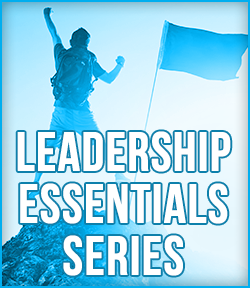Annie Dillard succinctly said, “How we spend our days is, of course, how we spend our lives.”
And I love how Todd Henry expands the question to frame it up perfectly,
“Imagine for a moment that you will have a guest accompanying you throughout your day tomorrow. This person’s task will be to follow you around from the moment you wake up until the moment you fall asleep. They will take copious notes about your schedule, how you interact with your family and friends, how you engage in your tasks and projects, and your mindset through it all.
How would you act differently tomorrow if you knew that your actions and attitude on that one day were going to be a permanent testament to your life?”
That’s a powerful mental image that snaps us right to attention, doesn’t it?
If you’re like me, it also leaves you feeling overwhelmed by the new magnitude of our daily decisions.
To combat that, I want to share a framework from Henry’s latest book, Die Empty. It’s remarkably simple and supremely practical. The key is to practice it daily, living EMPTY.
E: Ethics
Review your code of ethics and today’s calendar. Think about how you will apply your code to the situations you expect and if there are any potential pitfalls.
As a side note, Chapter 7 has a great exercise for creating your own code. Here is one of Henry’s first examples:
- Artistic: I would approach every interaction, meeting, and task with the objective of revealing the hidden truth or making it beautiful.
- Curious: I would never settle for the first answer, but would instead ask probing questions that would help me get to the deeper truth.
- Healthy: I would be a champion for the health of myself and my team, and I would refuse to compromise their health in order to squeeze out a little more work.
- Energizing: I would add more energy to any situation than I took away. I would refuse to be an energy drain.
Here’s a peek at my first draft:
- Leadership: I will assume the responsibility of leadership.
- Health: I will be a champion of healthy habits.
- Learning: I will have a perpetual curiosity for new places, people, and ideas.
- Excellence: I will strive for excellence.
M: Mission
Ask yourself, what matters today? In light of your goals, what will make today successful?
To complement this step, I use the mission statement I drafted recently while reading Robert D. Smith’s 20,000 Days. Here’s a peek in case it’s helpful:
I am an explorer and excellence warrior, living a life of adventure.
I approach both roles with intensity, determined to live intentionally and excellently, and bringing as many people into adventure as possible.
I want a better city, state, county, and world.
I want a meaningful body of work and a community that values service, continuous learning, and proactive diligence.
I want a body that is healthy and capable of competing in Ironman and other excellent adventures.
Also ask, is there anything that should go away? (You can even keep a Stop Doing List.)
P: People
Thinking about your calendar and opportunities, ask:
- Who will I interact with today? What’s important in each relationship?
- How can I serve today?
T: Tasks
This is the part we always jump to first, but I have so much more clarity if I wait to do this until I’ve completed the first few steps. Often, I will have already decided to delegate and teach (or even delete) several items from my list. I’m also in a better state of mind to determine priorities.
With that, what must get done today?
Once you’ve committed to a priority, schedule it on your calendar.
Y: You
Last, but not least, what will you do today to develop yourself?
Also pause to be grateful and dream a little.
Where most productivity systems focus on how to get more done, Henry’s helps us focus on getting the right things done.
—
Links:
- Practice EMPTY on Lift App
- Die Empty on Amazon (affiliate)
- 20,000 Days on Amazon (affiliate)







Recent Comments